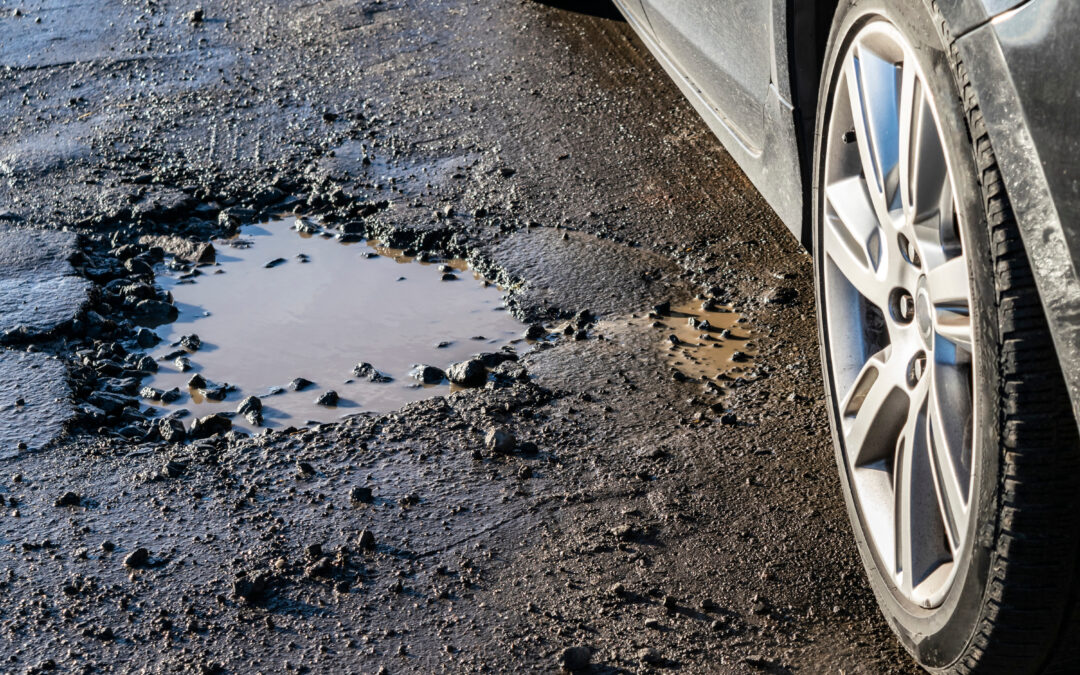The cost to fix local roads and highways in Michigan is larger than the state’s previous estimates, a new study found.
A year of research by the Public Sector Consultants, a nonpartisan Lansing firm, found the state is facing an annual shortfall upwards of $3.9 billion to fix Michigan’s deteriorating roads and bridges. A 2016 state infrastructure commission previously estimated the cost at $2.2 billion. It looked at necessary funding to meet state standards for road and bridge quality.
For the new report, researchers examined the 2016 road funding estimate, the overall cost of maintaining Michigan’s roads and potential solutions for raising revenue to close the funding gap.
The state has worked to increase revenue over the years for transportation infrastructure funding.
Michigan’s gas tax increased to about 3 cents per gallon in 2017, raising the total motor fuel tax revenue by 34.3% or $347.2 million. The state also received one-time federal money of $7.3 billion from the 2021 Infrastructure Investment and Jobs Act, and $3.5 billion from the 2019 Rebuilding Michigan Program to help with road funding.
Even taking into account new federal and state funding, more needs to be done, leaders from Michigan’s road industry and business community said at a press conference Tuesday, March 7, in Lansing.
“The depth of the problem is large, but the cost of doing nothing is higher,” said Jim Holcomb, president of the Michigan Chamber of Commerce. “We have to take action now.”
Because of a lack of funding, Michigan has not been able to maintain state standards of keeping roads at 90% good and fair condition, the new report found.
A primary focus of the report looks at the cost-effectiveness of road maintenance versus complete reconstruction after a road has reached the end of its life. Researchers found reconstruction is five to eight times more expensive per lane mile than preventative maintenance.
Brad Williams, vice president of government relations at the Detroit Regional Chamber, said preventative action could save Michigan drivers money in car upkeep costs and could attract businesses to benefit the economic development in Michigan, too.
“No one wants to deal with an unreliable transportation network,” Williams said.
Researchers identified several options that could provide comprehensive, long-term solutions to the growing problem. These include raising the motor fuel tax between 39 cents and 74 cents per gallon, or on a per-dollar basis.
Other solutions would require legislative action, like increasing the sales tax and dedicating the increase to transportation funding, or allowing local communities to pursue a sales tax increase for local road revenue.
The last option would be a 3- to 5-cent tax based on miles traveled in Michigan. This could be pursued through a number of different models, like paying at the pump.
Rob Coppersmith, executive vice president of the Michigan Infrastructure and Transportation Association, said he’s looking forward to launching the “Fix MI State Coalition” with industry partners in coming days to continue to advocate for change that will bring an end to the funding crisis.
“Michigan’s need is clear and this report shows that we need to enact an equitable, long-term, sustainable infrastructure investment plan that will finally dedicate the resources to improve our roads and bridges that our friends and families use to get to school, work, and their homes,” Coppersmith said.
This article originally appeared in MLive. For more, click here.

